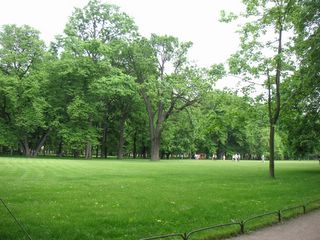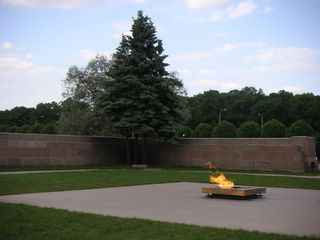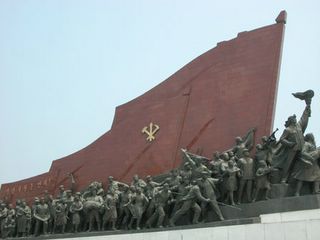Living in a big city can be really stressful sometimes. Fortunately, Saint-Petersburg has something to combat the stress, namely the great parks, avenues and embarkments.
St. Petersburg is the greenest of Russia's major cities. The statistics are impressive: Over 200 parks and gardens, plus over a thousand tree-lined streets and more than 700 leafy squares; and more than 2,000 hectares of greenery in total - or more than 56 square meters for each of the city's more than 4.5 million inhabitants. (more info)If one is not confined to the office, spending a few hours with a book (or a PDA) in a park can be really invigorating. My only complaint is the noise pollution from the cars - you can't get away from it. It's all really close together so I can chose the place that fit my mood best - Summer Garden, Michael Garden, Mars Field, etc.
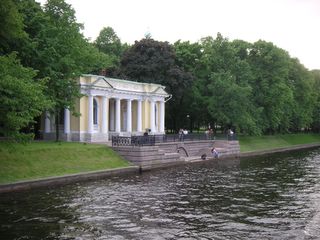
Mojka river and the Rossi pavilion
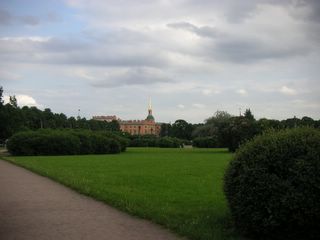
Mars Field, Mikhajlovsky Castle in the background
There are also some novel ways to add greenery to the city. On June 22, 2005 ">a grass lawn was created on the Palace square in St. Petersburg, Russia. Called "Grass of life", this is a memorial to the June 22, 1941, the day of the treacherous attack of the Fascist Germany on the Soviet Union. The grass symbolizes the victory of life over death, good over evil, peace over war.
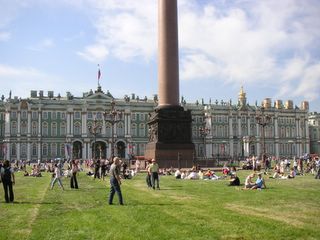
Grass of Life on Palace square
Underneath the grass the square is paved with cobblestones. In the very middle of the grass raises the Alexander's column and in the background is the Winter Palace where the Hermitage is located (more photos).
If only we could do something about those goddamn cars. :(
